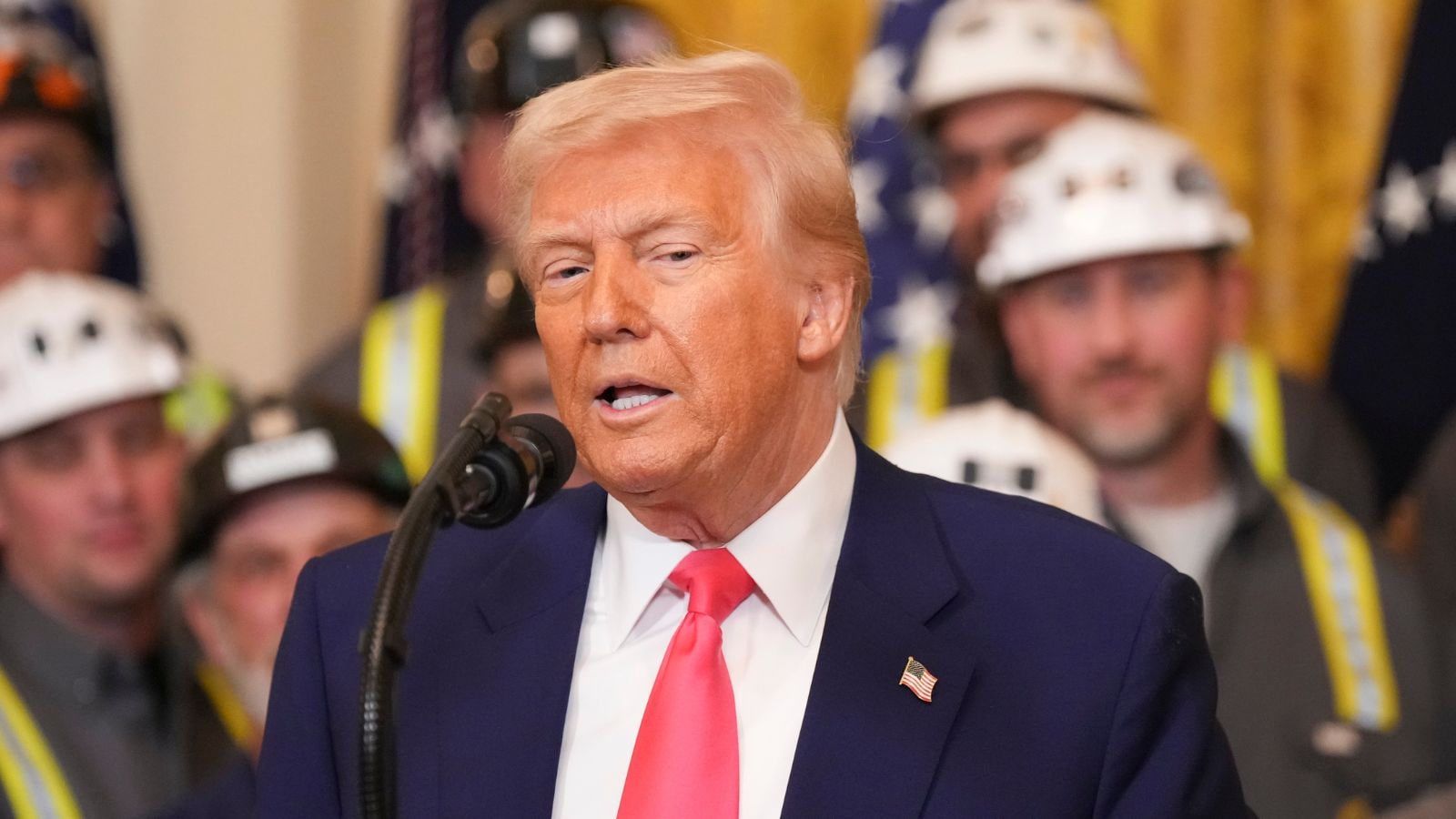 |
|
Donald Trump's recent pronouncements regarding trade and tariffs paint a picture of aggressive negotiation tactics and a belief in the United States' inherent leverage. The article details Trump's claims that foreign leaders are essentially begging to secure trade deals, using crude language to emphasize his perceived dominance. This rhetoric is delivered against the backdrop of newly implemented tariffs and the threat of further tariffs, particularly targeting the pharmaceutical industry. The article underscores a shift in the administration's stance, moving from mixed signals to a more open invitation for negotiations, albeit with unclear pathways to tariff relief. Trump's remarks were delivered at a fundraising gala for House Republicans, indicating the political context and perhaps a desire to rally support for his trade policies. The emphasis on bringing pharmaceutical manufacturing back to the US highlights a concern for domestic production and a desire to reduce reliance on foreign sources. Furthermore, the article reveals that the administration is advising foreign governments to consider broader forms of cooperation beyond trade in their negotiations, suggesting a multi-faceted approach to leveraging the US's economic power. The reported internal discussions and the statements from various administration officials paint a complex picture of strategy and messaging. The claim that all actions are solely guided by what's best for the country suggests an appeal to national interest and a defense against criticisms of protectionism or isolationism. This approach carries significant implications for international relations and the global economic landscape, potentially reshaping trade dynamics and forcing other countries to adapt to the US's assertive stance. The underlying assumption appears to be that the US market is so crucial that other countries will be compelled to concede to its demands. Whether this strategy will ultimately prove successful remains to be seen, as it could also lead to retaliatory measures or a weakening of international cooperation. The potential impact on consumers, businesses, and the global economy is substantial, making this a critical area of observation and analysis.
The narrative presented in the article reveals a distinct worldview where international relations are viewed through a lens of power and leverage. Trump's boastful language and his depiction of foreign leaders as supplicants reflect a belief in the inherent strength of the United States and its ability to dictate terms in trade negotiations. This approach contrasts sharply with more collaborative and multilateral approaches to international trade, which emphasize mutual benefit and cooperation. The imposition of tariffs, particularly the proposed tariffs on pharmaceuticals, signifies a willingness to use economic pressure to achieve specific objectives. The rationale behind these tariffs is to incentivize domestic production, reduce reliance on foreign sources, and potentially lower drug prices for American consumers. However, the potential consequences of such tariffs are complex and far-reaching. They could lead to retaliatory measures from other countries, disrupting global supply chains and potentially increasing prices for consumers. Furthermore, the effectiveness of tariffs in achieving the desired outcomes is not guaranteed. Companies may choose to absorb the costs of tariffs rather than relocating production, or they may find alternative suppliers in countries not subject to the tariffs. The article also highlights the importance of political considerations in shaping trade policy. Trump's remarks at a Republican fundraising gala suggest a desire to rally support for his trade agenda and to counter criticism from within his own party. This underscores the complex interplay between economic policy and domestic politics. The reference to internal discussions and differing messages from administration officials suggests that there may be ongoing debates and tensions within the government regarding the best approach to trade negotiations. The emphasis on seeking broader forms of cooperation beyond trade, such as securing the release of Americans wrongfully detained abroad or boosting cooperation with US AI firms, indicates a recognition that trade is not the only area where the US can exert influence.
Analyzing Trump's strategy requires consideration of both its potential benefits and its inherent risks. On the one hand, his assertive approach could lead to more favorable trade deals for the US, potentially boosting domestic industries and creating jobs. The threat of tariffs could incentivize other countries to address unfair trade practices and to provide greater access to their markets for American companies. Furthermore, the emphasis on domestic production could strengthen the US economy and reduce its vulnerability to global disruptions. However, there are also significant risks associated with this strategy. The imposition of tariffs could lead to retaliatory measures from other countries, resulting in trade wars that harm all parties involved. The uncertainty surrounding trade policy could discourage investment and slow economic growth. Furthermore, Trump's aggressive rhetoric could alienate allies and undermine international cooperation. The effectiveness of Trump's strategy will ultimately depend on a number of factors, including the willingness of other countries to negotiate, the ability of the US economy to withstand trade disruptions, and the political support for Trump's policies both at home and abroad. The global implications of Trump's trade policies are significant. They could reshape global trade dynamics, alter supply chains, and impact economic growth in countries around the world. The potential for trade wars and increased protectionism could undermine the multilateral trading system and lead to a more fragmented global economy. Furthermore, Trump's approach could encourage other countries to adopt similar assertive trade policies, leading to a more confrontational and less cooperative international environment. The article provides a snapshot of a complex and evolving situation, highlighting the key players, the main issues, and the potential consequences of Trump's trade policies. It serves as a reminder of the importance of careful analysis and informed debate in shaping trade policy and navigating the challenges of the global economy.
Source: ‘Kissing my … to secure trade deals’: Trump mocks leaders amid tariff blitz
